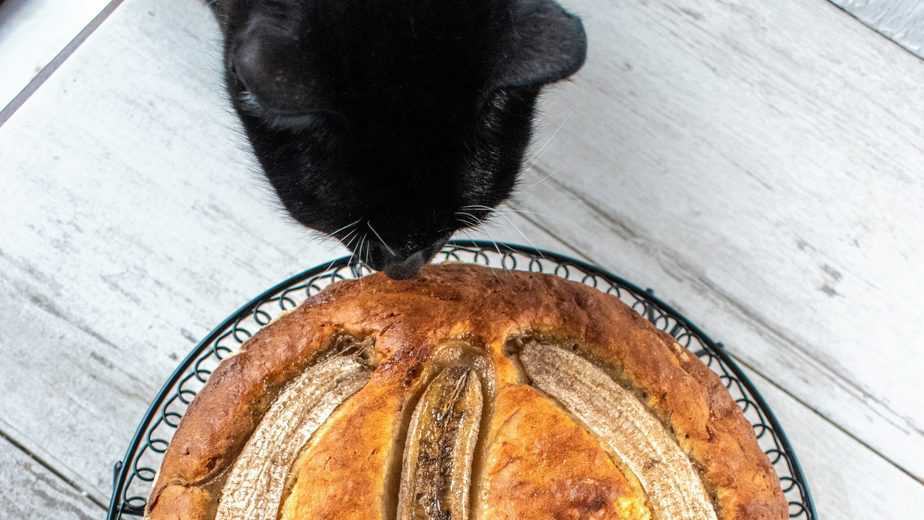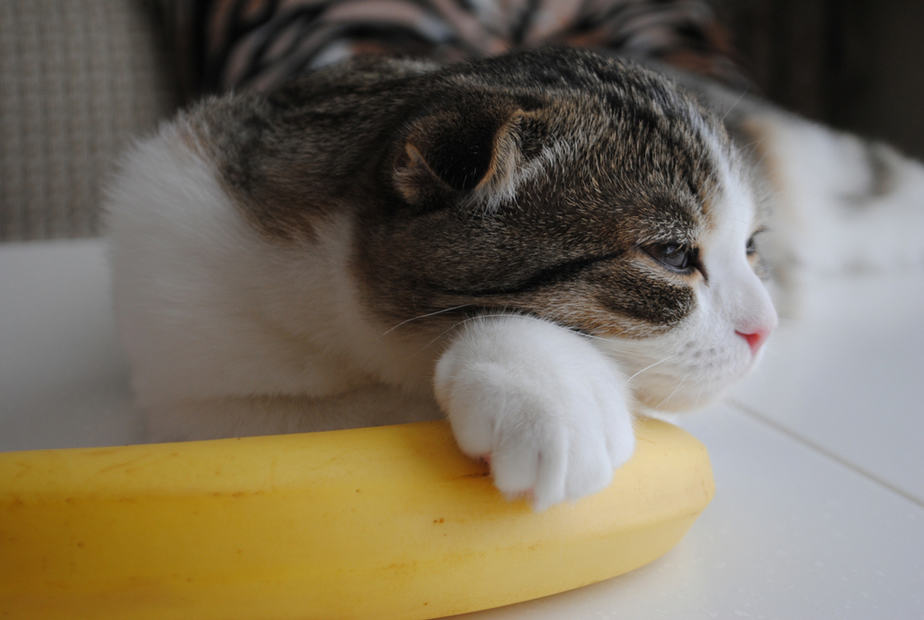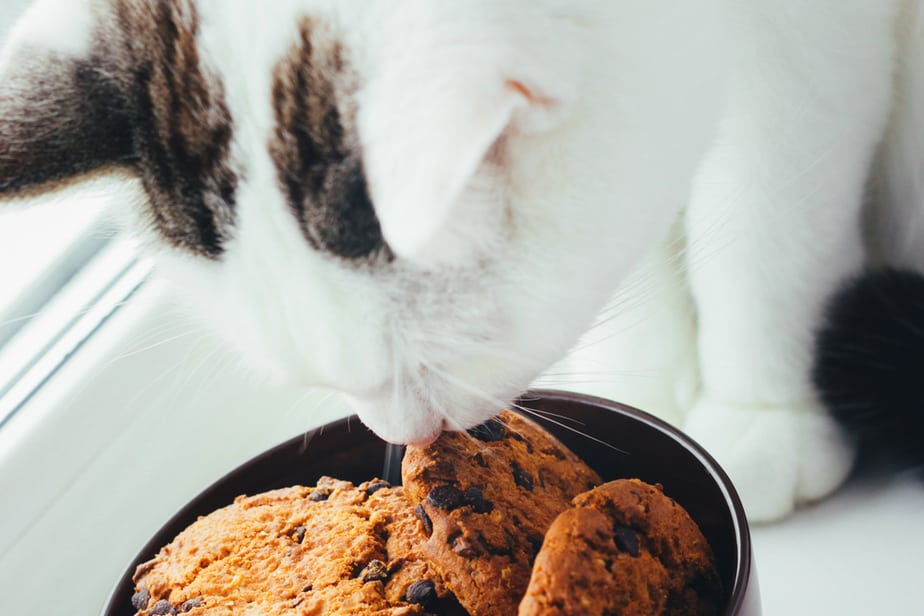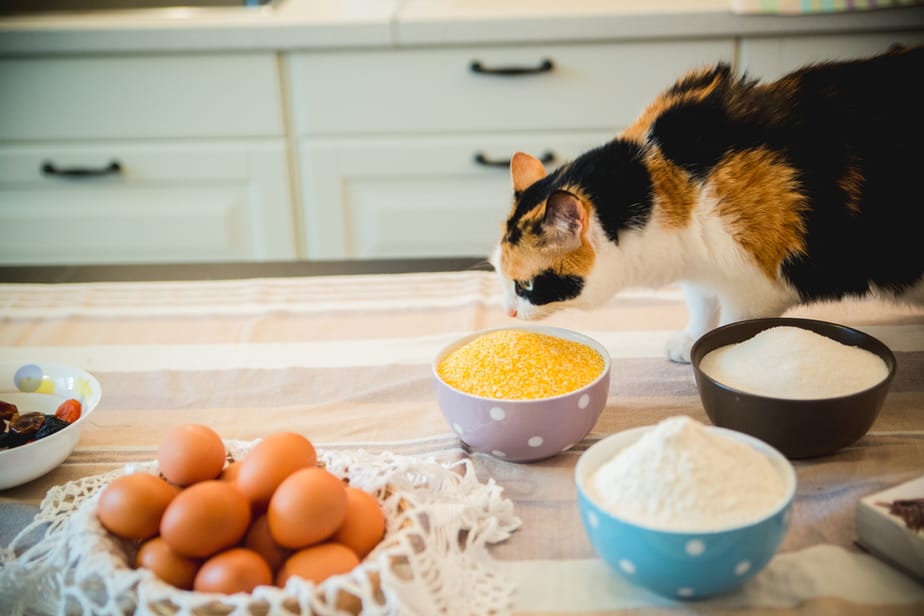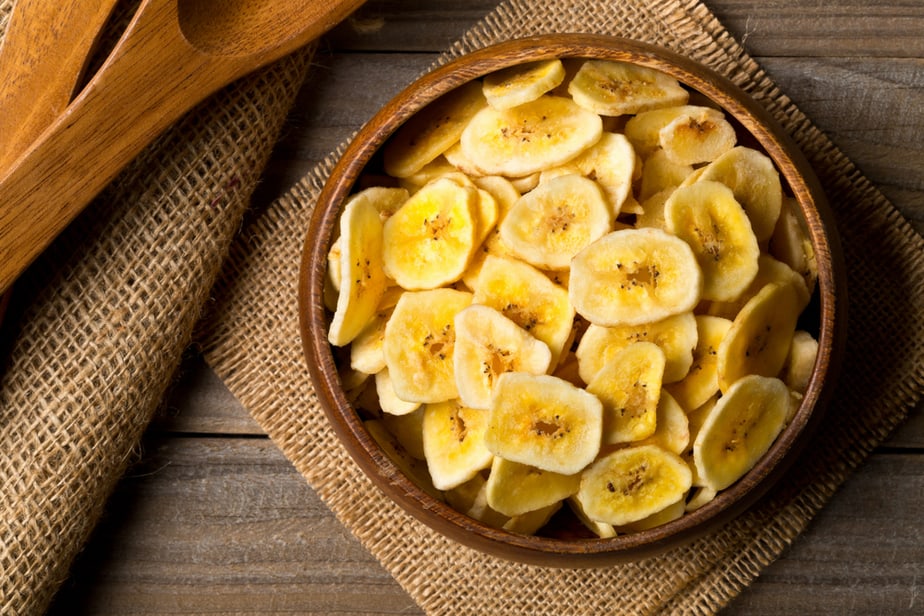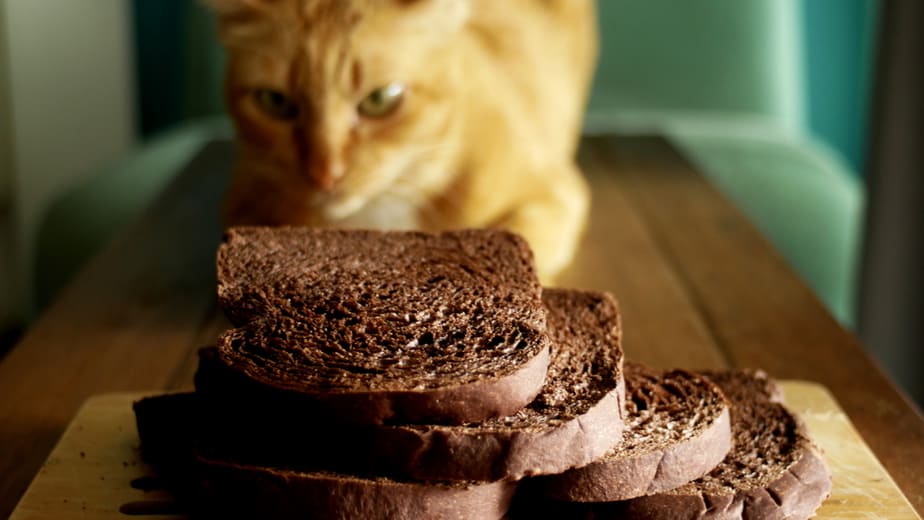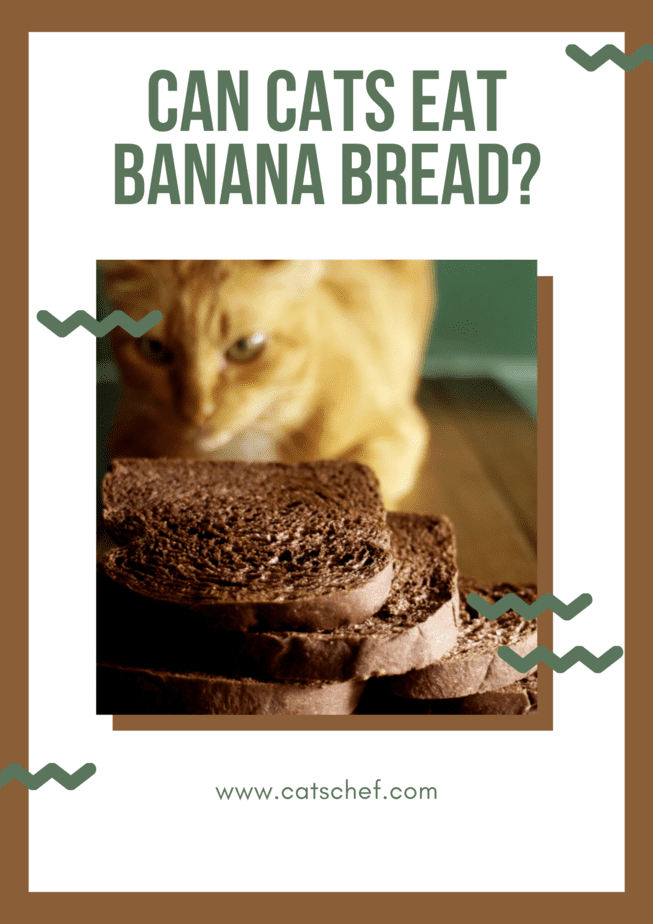📖 Table of Content:
We know how well banana bread goes with a glass of milk in the morning. It would be pawsome if cats could eat some banana bread with us, but can they?
Bananas are a great source of vitamins and minerals. In combination with bread, it makes a healthier breakfast than regular bread. So, can cats share some banana bread with us?
Is banana bread safe for cats?
This sweet baked good is easy to make. Not to mention delicious. You’ve probably witnessed your furball taking a peek at it. Due to the fact that bananas are safe for cats, you probably thought to give banana bread a try.
Small portions aren’t likely to cause mayhem to your pet’s digestive system, but anything more than that could. Banana bread is made to meet humans’ liking. Therefore, some ingredients found in banana bread might not be the best for your four-legged friend.
Ingredients of banana bread
This famous recipe can probably be found in every home. It’s a great and easy breakfast, healthier than normal bread, as it’s a high source of protein.
However, there may be more cons than pros in your cat eating banana bread. This delicious breakfast is also high in fats and carbs – not great in your kitty’s diet.
1. Bananas
Of course, the first ingredient and probably most important. Bananas are totally safe for your cat’s consumption. They are not just safe, though.
Bananas when taken in moderation can be super beneficial to your feline. They are packed with vitamins, including vitamins C, B6, and A.
Your cat’s heart and kidneys will be grateful for the amount of potassium contained in these fruits. Moreover, iron and magnesium found in bananas are good for both you and your lap monster.
Even though bananas are packed with these nutrients, should be eaten in moderation. But rest assured, these fruits can serve as snacks for your carnivorous pet.
2. Milk
This is something you should avoid feeding your cat. Milk is a dairy product and not welcome in a cat’s diet.
Cow’s milk is the most popular choice. This milk contains a sugar called lactose. Felines, as well as some humans too, are unable to break down that sugar, as their bodies don’t produce enough of the enzyme, namely lactase, that can digest it.
The lack of lactase can result in vomiting and diarrhea. While your cat may be drawn to drinking milk, it’s best to consult with your veterinarian first.
Thanks to nowadays’ high demands and markets, you can treat your pet to a bit of lactose-free milk as well.
3. Butter
Butter is bad for your cat because it’s filled with fat. Cats that have regular access to butter are known to have short lifespans.
In addition, butter is a dairy product. Most felines are lactose intolerant and therefore, butter could cause her some digestive discomfort.
Fat foods like butter aren’t recommended as a part of your pet’s diet. The excess fat found in these foods can lead to short-term and long-term health conditions.
4. Chocolate and raisins
These two ingredients can often find their way to our banana bread recipe. Chocolate will make it sweeter and that sensation of finding and biting down on a chunk of chocolate is priceless.
Yet, if your cat crosses ways with this sweet delicacy, it could be dangerous. Chocolate is a big no-no for felines because of the two compounds theobromine and caffeine. These make chocolate potentially lethal to your cat, so she shouldn’t consume it in even the smallest of amounts.
This is why you should avoid feeding your cat banana bread sweetened with chocolate. And unfortunately, this isn’t your only concern. Another ingredient that people often use to spruce up their banana bread is raisins.
You should avoid raisins at all costs. They are highly toxic to cats. Just one raisin could lead to kidney failure in both felines and canines.
5. Nuts
Banana bread often has added nuts. Nuts give banana bread that crunch or you may use them just for decorating purposes. Nuts can be beneficial to your feline, but only in moderation.
If your cat is nuts for nuts, she can have some. They can be a great source of protein for your feline. But keep in mind they are also calorie-dense.
Some vitamins and minerals also found in nuts can help with her immune system. However, some nuts can be toxic for your cats and can cause an allergic reaction. If in doubt, check with your vet before feeding it to your munchkin.
Nuts are also a great source of fiber which can help if your cat is experiencing constipation. Yet, too many nuts and high-fiber foods can cause some digestive problems, too.
Other ingredients found in banana bread
Some other ingredients may not be so welcoming for felines. Condiments like salt and sugar can be detrimental to your pet’s health.
Excess amounts of salt can result in sodium toxicity. This isn’t an ideal case scenario and can be very dangerous for your cat.
Furthermore, any unnecessary amounts of sugar can cause harm as well. In small amounts and occasionally, it’s less likely sugar will harm your cat.
But if your cat eats banana bread often, it can have a detrimental outcome. Too much sugar over a longer period of time can cause health issues, such as tooth decay, obesity, and diabetes.
1. Wheat and baking soda
Wheat isn’t dangerous for cats. It’s often found in commercial cat foods as a filler. Yet, cats can’t really thrive off of grain-based foods. They are carnivores and require a meat-based diet to survive.
Another ingredient that can be found in banana bread is baking soda. While not immediately harmful to your fluff, she may have an allergic reaction to it.
Some symptoms of an allergy are vomiting, diarrhea, lethargy, excessive thirst and urination. In extreme cases, more serious symptoms could occur, such as tremors and seizures.
2. Oil and eggs
Oil is bad for cats and shouldn’t be a part of their diet. If you must, use extra virgin olive oil as it’s the least dangerous to your fluff.
Diarrhea and vomiting can be the side effects of consuming too much fat found in oils. Although not poisonous to cats, oils are best avoided.
When making banana bread, make sure your cat doesn’t get a hold of raw eggs. While properly boiled ones are safe and super healthy, raw ones can be tricky.
Raw eggs aren’t recommended because they may carry harmful bacteria. Salmonella and E. coli are reasons enough for your cat to avoid them.
What about banana chips?
Store-bought banana chips aren’t a great option for your feline. The bought ones are often deep-fried in oils, which, as stated earlier, is unhealthy for your pet.
Other than that, unnecessary amounts of salt and sugar can be found in these store-bought products.
You can try making some homemade banana chips. If not, there are many cat treats to choose from that are tastier and healthier for your furchild.
Can cats eat frozen bananas?
Yes, cats can eat frozen bananas as long as they don’t have any added ingredients. Bananas hold good health benefits for your feline.
She may have a frozen banana to cool down on hot summer days, for example. While frozen, bananas can help to keep her hydrated as well.
Slice up a banana and freeze it. This way, your fluff can enjoy a nutritious, refreshing snack.
What about banana ice cream and banana milk?
These two are better left for humans’ enjoyment. Both ice cream and milk are dairy products, so these two foods can do some damage.
Since both of these products contain lactose, it’s possible your cat will have some digestive issues, with symptoms such as vomiting and diarrhea.
Not to mention the excessive amounts of sugar these two contain.
Do cats even like banana bread?
Yes, cats usually like banana bread. While there may be some oddball, felines often like the taste of this delicacy. Bananas attract them because of the fresh smell and fresh bread has an amazing taste.
However, it’s not the sweetness that attracts them because your floof doesn’t have a sweet tooth. She doesn’t possess taste buds that would allow her to pick up sweet flavors.
Cats can eat banana bread, but be careful. Make sure your cat’s safety comes first when trying out new delicacies like this. Your cat doesn’t yearn for sweet treats, so at least that’s one less thing to worry over.
Can cats eat banana peels?
Your princess probably never even thought about it. Cats are delicate animals and aren’t really drawn to things that could potentially harm them.
They are picky eaters after all and banana peel surely isn’t on their menu. However, if you do have an oddball in your home, make sure to throw away any banana peels.
These are a choking hazard if your furry monster ever goes crazy and starts exploring it. Other than that, it’s hardly digestible so the risk of intestinal blockage is high.
Read more: Can Cats Eat Biscuits? Tea Dip Or Skip?
To sum up
Cats can eat banana bread, but in moderation. A few bites will do no real damage to her. However, this food isn’t something that a carnivore like your cat should eat.
Some ingredients like dairy products, chocolate, and raisins are off-limits for your feline. Dairy can cause them gastrointestinal distress, while chocolate and raisins are lethal.
On the other hand, it’s safe to opt for some homemade banana chips or frozen bananas as a treat. Other than that, there’s plenty of fish in the sea for your kitten!
Read more: Can Cats Eat Blueberry Muffins? Are They Healthy For Cats?
